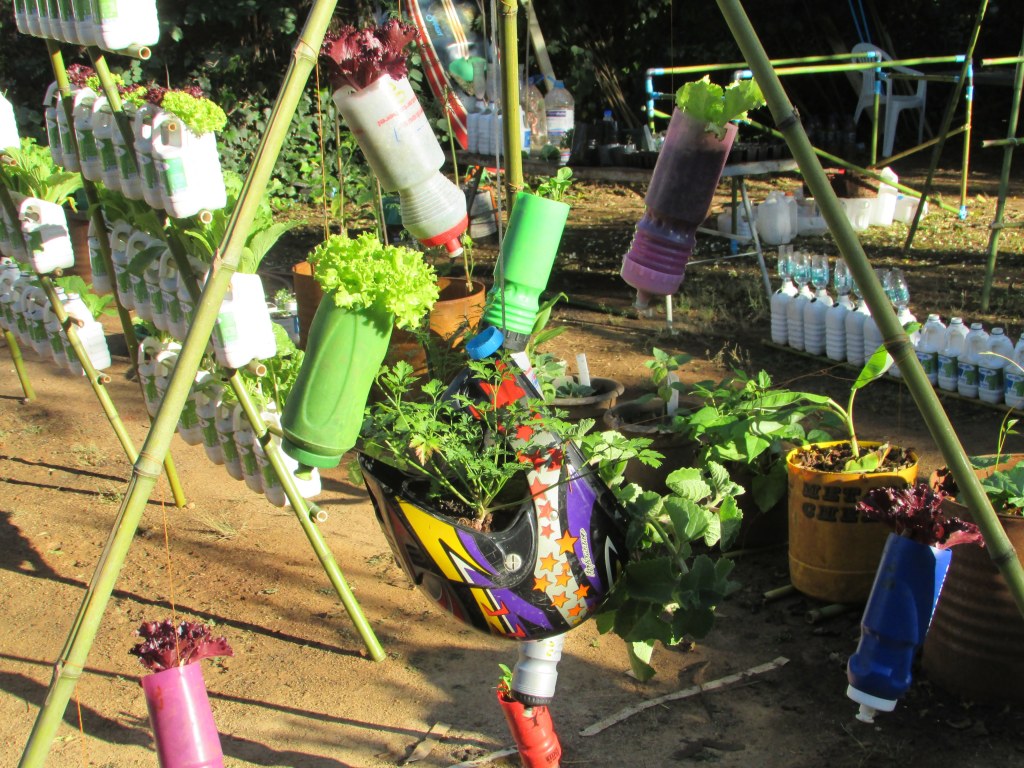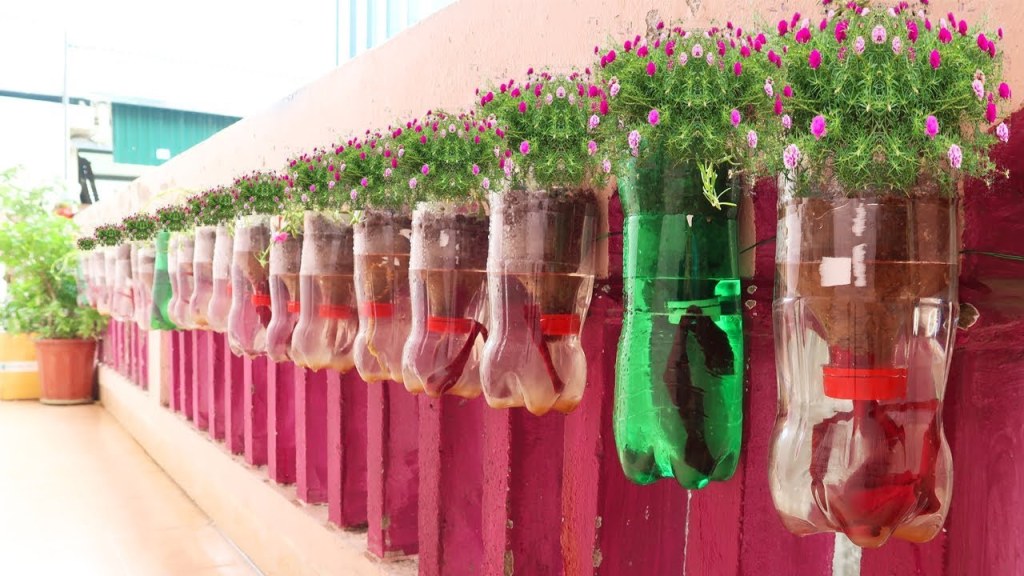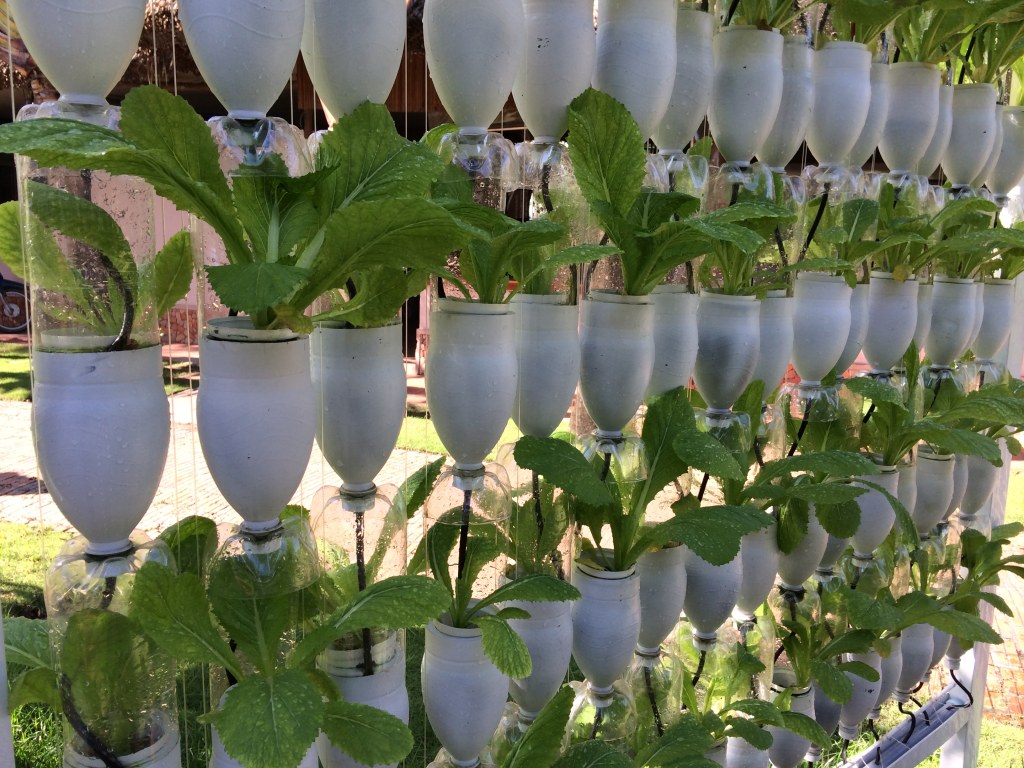Revolutionizing Urban Gardening With Recycled Materials: Harness The Power Of Sustainable Growth Now!
Urban Gardening Using Recycled Materials
Introduction
Dear Readers,
3 Picture Gallery: Revolutionizing Urban Gardening With Recycled Materials: Harness The Power Of Sustainable Growth Now!



Welcome to our article on urban gardening using recycled materials. In this article, we will explore the concept of urban gardening and how it can be implemented using recycled materials. Urban gardening has gained popularity in recent years as a sustainable way to grow plants in urban areas, and the use of recycled materials further enhances its eco-friendly nature.

Image Source: hackaday.io
In this article, we will provide you with a comprehensive guide on urban gardening using recycled materials, including its benefits, techniques, and tips to get started. Whether you are an experienced gardener or a beginner looking to explore urban gardening, this article will provide you with valuable insights and practical advice.
So, let’s dive into the world of urban gardening and discover how you can create your own green oasis in the heart of the city.
What is Urban Gardening Using Recycled Materials? 🌱
Urban gardening, also known as urban farming or urban agriculture, refers to the practice of growing plants and vegetables in urban areas. It is a sustainable and innovative approach that allows city dwellers to connect with nature and enjoy the benefits of gardening despite limited space.

Image Source: ytimg.com
Urban gardening using recycled materials takes this concept a step further by utilizing discarded items to create functional and aesthetically pleasing garden spaces. By repurposing materials such as plastic bottles, wooden pallets, and old containers, urban gardeners can reduce waste and contribute to a greener environment.
Now, let’s explore the key elements of urban gardening using recycled materials, including who can participate, when and where it can be done, and why it is an important practice.
Who Can Participate in Urban Gardening Using Recycled Materials? 🙋♂️🙋♀️

Image Source: wordpress.com
Urban gardening using recycled materials is a versatile activity that can be enjoyed by people of all ages and backgrounds. Whether you live in an apartment, have a small backyard, or even a balcony, you can participate in urban gardening.
Children, adults, and seniors can all benefit from the therapeutic and educational aspects of urban gardening. It is a wonderful way to teach children about the importance of nature, sustainability, and healthy eating habits. For adults, urban gardening provides a peaceful escape from the hustle and bustle of city life, while seniors can enjoy the physical and mental benefits of tending to plants.
When and Where Can Urban Gardening Using Recycled Materials Take Place? 🏙️
Urban gardening can take place throughout the year, depending on the climate of your region. Indoor gardening using recycled materials allows you to grow plants year-round, while outdoor gardening is more popular during the spring and summer months.
As for the location, urban gardening using recycled materials can be done in various settings, including balconies, rooftops, community gardens, and even unused urban spaces. The key is to utilize the available space creatively and efficiently, making the most of every square inch.
Why is Urban Gardening Using Recycled Materials Important? ❗
Urban gardening using recycled materials serves multiple purposes and brings numerous benefits to individuals and communities.
Firstly, it promotes sustainability by reducing waste and repurposing materials that would otherwise end up in landfills. By using recycled materials, urban gardeners contribute to a circular economy and reduce their environmental impact.
Secondly, urban gardening using recycled materials allows for the production of fresh, organic produce in urban areas. This is particularly important in food deserts, where access to fresh and affordable food is limited. By growing their own fruits, vegetables, and herbs, urban gardeners can have a direct impact on their dietary choices and improve their overall health.
Lastly, urban gardening using recycled materials fosters a sense of community and encourages social connections. Community gardens and shared urban spaces provide opportunities for people to come together, share knowledge, and promote a greener and more sustainable lifestyle.
How Can You Start Urban Gardening Using Recycled Materials? 🌼
Starting an urban garden using recycled materials is an exciting and rewarding endeavor. Here are some steps to help you get started:
Choose a suitable location for your garden, considering factors such as sunlight, accessibility, and available space.
Gather recycled materials such as plastic bottles, wooden pallets, old containers, and discarded furniture.
Prepare the soil by using compost or organic fertilizers to ensure optimal plant growth.
Select the types of plants you want to grow, considering the climate and available space.
Plant your seeds or seedlings, following the instructions provided for each plant.
Water your plants regularly and provide them with the necessary care, such as pruning and pest control.
Monitor the progress of your garden and enjoy the fruits of your labor.
Advantages and Disadvantages of Urban Gardening Using Recycled Materials
Like any activity, urban gardening using recycled materials has its advantages and disadvantages. Let’s explore them in detail:
Advantages 👍
1. Environmental Sustainability: By using recycled materials, urban gardeners contribute to waste reduction and promote a greener environment.
2. Fresh and Organic Produce: Urban gardening allows for the production of fresh, organic fruits, vegetables, and herbs, promoting healthy eating habits.
3. Improved Well-being: Gardening has been proven to have therapeutic benefits, reducing stress levels and improving mental well-being.
4. Community Engagement: Urban gardening creates opportunities for social interactions, community engagement, and knowledge sharing.
5. Cost Savings: Growing your own food can save money in the long run, as you reduce the need to purchase produce from stores.
Disadvantages 👎
1. Space Limitations: Urban gardening is often limited by space constraints, particularly in densely populated urban areas.
2. Time and Effort: Maintaining an urban garden requires time, effort, and commitment to ensure proper care and maintenance.
3. Dependency on Weather: Outdoor gardening is subject to weather conditions, which can affect the growth and productivity of plants.
4. Pest and Disease Management: Urban gardens may face challenges in pest and disease control, requiring proactive measures to protect the plants.
5. Limited Crop Variety: Due to space limitations, urban gardeners may have to prioritize certain crops over others, resulting in limited variety.
Frequently Asked Questions (FAQs)
1. Can I start an urban garden if I live in a small apartment?
Yes, you can start an urban garden in a small apartment by utilizing vertical gardening techniques and selecting compact plants.
2. What are some common recycled materials used in urban gardening?
Common recycled materials used in urban gardening include plastic bottles, wooden pallets, old containers, and discarded furniture.
3. How can I ensure the soil is suitable for urban gardening?
You can ensure suitable soil conditions by using compost or organic fertilizers to enrich the soil with nutrients.
4. What are the benefits of using recycled materials in urban gardening?
Using recycled materials in urban gardening promotes sustainability, reduces waste, and contributes to a circular economy.
5. How can I involve my community in urban gardening using recycled materials?
You can involve your community in urban gardening by organizing workshops, sharing knowledge, and creating shared garden spaces.
Conclusion
In conclusion, urban gardening using recycled materials is a sustainable and innovative way to create green spaces in urban areas. By repurposing discarded items, we can reduce waste, promote environmental sustainability, and produce fresh, organic food. Urban gardening also brings communities together, fosters social connections, and improves overall well-being.
So, whether you have a small balcony or a spacious rooftop, consider starting your own urban garden using recycled materials. Embrace the beauty of nature in the heart of the city and make a positive impact on your environment and community.
Final Remarks
Dear Readers,
Thank you for taking the time to read our article on urban gardening using recycled materials. We hope you found it informative and inspiring. Before you embark on your urban gardening journey, remember to prioritize sustainable practices, choose recycled materials wisely, and enjoy the process of nurturing your own green oasis.
Happy gardening!
This post topic: Gardens


